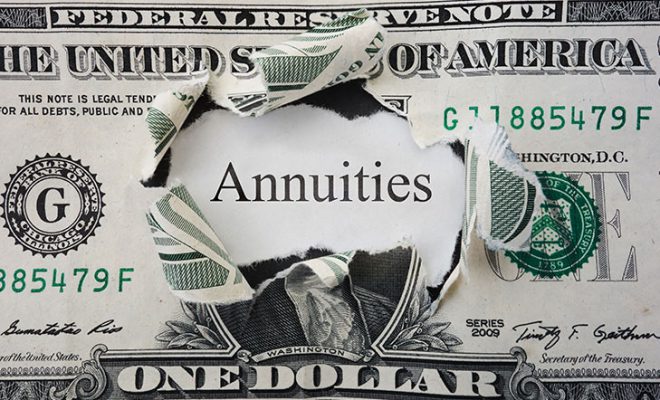10 Financial Planning Actions to Consider During an Economic Crisis
An economic crisis is a situation where a country experiences a financial plunge. It affects the GDP value, as well as reduces liquidity in the system. It also causes drastic market fluctuations and can lead to inflation or deflation. What is more startling is the lack of preparedness to tackle such situations, causing further economic issues. At an individual level, it is important to ensure that you stay afloat during such demanding times.
Here are 10 key financial planning actions to consider for monetary preparedness:
1. Maximize your Liquidity
An economic crunch directly impacts liquidity. It severely affects the value of fixed assets. However, these are situations that require maximum financial support. Hence, you must maintain high liquidity. You could choose current, savings, or money market accounts or assets such as certificates of deposits (CDs). Opting for short-term stable investments, like government securities, is also a good idea. Unlike other assets such as stocks, the value of these resources is not impacted by the economic events of the country. This allows you to in-cash these resources without high penalties whenever there is a need for money.
2. Re-Evaluate your Priorities
An economic uncertainty calls for a reassessment of financial goals and forming a plan to manage the crisis. However, it does not imply abandoning your desires but postponing them to favorable times. For instance, some retirees who included high-risk equities in their portfolio assets to cover future costs might have to reconsider options and rely on a more conservative approach to ensure stable earnings. You must remember that assets can later be shuffled to accommodate more risky assets in better times.
3. Pay your Debts
Delaying and piling up debt payments such as credit card bills, mortgages, auto loans, etc. is not a recommended idea in an economic crisis. As per research, 13% of Americans are not able to save more because of their debts. These are typically high-cost debts, which if paid off can improve budgets. It also helps you prepare for the financial uncertainties and emergencies ahead.
4. Frame a Budget
In economically challenging times, money plays the central role for survival. You must know where your money is going and how to use it efficiently. Forming a budget keeps expenses in control while promoting living within means. Ideally, a budget should not allocate more than 30% of your net income on discretionary expenses. A majority of the income should be spent on non-discretionary items. However, in a financial crisis, the share of discretionary spending should be reduced further to make room for savings.
5. Create an Emergency Fund
The importance of an emergency fund in financially challenging times is non-negotiable. An economic crisis can cause the loss of a job and lead you to live off your savings. This can be disastrous for the future. Hence, to be wary of such times, you must hold certain funds as a strict emergency reserve so you can avoid having to use your retirement accounts. Using retirement accounts reduces your savings, diminishes investment values, and lowers returns.As per research, one out of every fifth American is relying on their 401(k) plan or similar retirement savings accounts to make ends meet. In addition to this, 14% of people, retired, unemployed and working have already tapped into these funds.
6. Have a Secondary Source of Income
An economic crisis can result in unemployment. Hence, it is not wise to rely on one source of income. As per the reports of May 2020, the COVID-19 predicament has led to a loss of more than 36 million American jobs. With the increasing intensity of the situation, the expected figures are set to cross the mark of the Great Depression of1933. In such times, one source of income completely fails to fund expenses. As a precautionary plan, you must always invest in some stable form of income that can provide you secondary funding. These include part-time jobs, freelancing, online ventures, rental property, bank interests, or monthly investment returns.
7. Assess your Portfolio
An economic test causes significant negative impacts on the value of multiple assets and properties. A critical step in such times is to conduct a thorough assessment of your portfolio. You must understand the types of assets you own, the duration of the portfolio, the risk involved in investments, and so on. Once the analysis is done, it is advised to make the required changes but not in a panic. Instead, handling the situation with utmost caution is recommended. If the maturity of your portfolio is due anytime soon, but there is a dip in its value, it is best to hold on to it or re-invest. Also, remember to always diversify into different sectors and industries. Ensure to allocate assets in a manner that creates a balance between bad and good performers.
8. Manage your Risk Tolerance
The effect of a financial downturn can cause lasting impacts. Such as, in COVID-19, the S&P 500, Dow Jones, or Nasdaq saw a 10% fall until mid-March. In these times, knowing the financial risk is important. This is required to balance risk and reward strategies. It is advisable to pull out of major risky investments and opt for assets that offer more stable returns. If you have more money in stocks that are falling in value consistently, choose to diversify to bonds that are currently being sold at a fair price but have stable long-term returns.
9. Be Wary but Invest in the Future
A financial crunch can cause a very negative sentiment in the market. This will lead to people pulling out investments. While that seems like the most considered choice, it is not the best one. In an economic crisis, watchful investments for the future can boost the financial plan. Even though the market is highly volatile, it is still a great time to build wealth. For plans such as an individual retirement account (IRA), a 401(k) plan, or other accounts, the goal should be to remain stagnant and not withdraw the money. Allow the volatility to pass. Keep the assets in the market for as long as possible, allowing them to recover. Moreover, if you have some years left for retirement or have the financial ability to survive the crisis, you can tap on your risk appetite slightly and choose to grow investments. Keep the money in the market so it can recover in the long run. As is evident, despite intra-year volatility, the S&P 500 Index in the U.S. recorded a positive return in 24 out of 30 years considered in the research.
10. Act only when necessary
A very important trick to remember during the critical times is to stay put and not act in haste. Be wary of traps and tricks that might create an urge for action. Moreover, uncertain changes in the market can often persuade the investor to act instantly to maximize gains or reduce losses. However, acting in haste can also lead to failure. Hence, it is vital to curb the short-term urge and not fall for speculation and gambling.
To sum it up
The force of the impact of the economic crisis cannot be predicted and measured precisely. Hence, it is important to be financially prepared with a sound strategy. This will help ensure monetary health in the present, as well as safeguard long-term financial plans. In such times, a financial advisor can provide perfect guidance to help navigate the crisis effectively.














